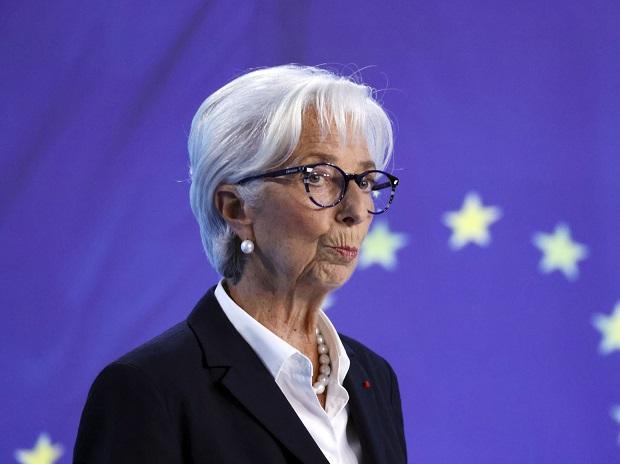[ad_1]
The global economy may be headed for a new era of volatile inflation, making it even more crucial to anchor expectations for where prices are headed, central bank governors warned Friday.
Policymakers cautioned that hopes for a quick cooling in inflation pressures next year may prove premature. More than a dozen central bankers gathered in a conference in Bangkok organised by the Bank of Thailand and the Bank for International Settlements. Climate change, geopolitics and shifting population growth mean prices may remain elevated for longer, they said.
That makes it even more crucial to hammer home a message to households and businesses that prices will be brought to heel. The danger of allowing inflation expectations to become unanchored would be even more damaging, European Central Bank President Christine Lagarde said.
“Given this exceptional uncertainty, what we central bankers have to do is actually deliver monetary policy that anchors expectations so those expectations remain moored to target,” she said on a panel discussion.
“We need to signal to the public, to the observers, to the commentators, that in all scenarios inflation will return to our medium term target in a timely manner. This is the best we can do in the current environment,” Lagarde said.
All eyes are on the final ECB meeting of the year on Dec. 14-15, when officials will decide whether to deliver a third straight interest-rate increase of 75 basis points, or mloderate the pace to half point. In Asia, most central banks meeting on rates this month are widely expected to sustain monetary tightening.
First Test
Worries about enduring supply constraints peppered the discussions among officials. Reserve Bank of Australia Governor Philip Lowe said central banks are facing their first test in a new world of more variable inflation.
“If inflation is going to be even more variable, it makes the credibility of monetary policy more important than ever,” he said. “We really need people to believe and understand that when inflation is away from target, which it will be more often, that it will come back.”
Central banks have aggressively raised interest rates this year in an effort to tame the worst inflation outbreak in decades. Prices are expected to ease next year due to slowing demand, falling commodity and food prices and favorable year-on-year comparisons.
“A preemptive, front-loaded and forward-looking interest rate response is very important to bring down inflation expectations,” said Bank Indonesia Governor Perry Warjiyo. The consensus for price gains in Southeast Asia’s largest economy has cooled “swiftly” to 5.5% today from close to 7% four months ago, thanks to policy makers’ aggressive rate hikes, he said.
“But we have, I would say, never faced such an important increase in global inflation,” Agustin Carstens, who heads the Bank for International Settlements, told the conference. “The simultaneity of it is quite remarkable.”
Low Inflation
In China — where prices have been relatively subdued this year given Covid lockdowns remain a mainstay of pandemic policy — officials are focused on growth, according to People’s Bank of China Governor Yi Gang.
Yi appeared at the conference in a video speech, saying that the central bank has a “pretty accommodative monetary policy in place to help with economic recovery and maximise employment.” He said inflation will likely remain in a “moderate range” in 2023.
Raghuram Rajan, a former governor of India’s central bank warned that volatility could also mean prices return to a lower regime given growth headwinds that include aging populations, lower immigration, diminished fiscal room and deglobalization all mitigate against rapid economic expansion.
“We should be prepared to potentially go back to the low inflation regime,” said Rajan, who’s now a professor of finance at the University of Chicago Booth School of Business.
Still, worries about enduring supply shortages and blockages are among the more pressing medium term considerations that officials highlighted.
“Supply constraints have become front and center and there are grounds for thinking this is not necessarily temporary,” Bank of Thailand Governor Sethaput Suthiwartnarueput said. “We would argue that supply considerations are likely to be at the forefront for some time to come.”
[ad_2]
Source link



